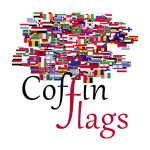Description
 Nigeria, officially the Federal Republic of Nigeria, is a country in West Africa. The federation comprises 36 states and 1 Federal Capital Territory, where the capital, Abuja, is located. The constitution defines Nigeria as a democratic secular state. Nigeria is often referred to as the “Giant of Africa”, owing to its large population and economy. With 186 million inhabitants, Nigeria is the most populous country in Africa and the seventh most populous country in the world. Nigeria has the third-largest youth population in the world, after India and China, with more than 90 million of its population under age 18. The country is viewed as a multinational state as it is inhabited by 250 ethnic groups, of which the three largest are the Hausa, Igbo and Yoruba; these ethnic groups speak over 500 different native languages and are identified with a wide variety of cultures. The official language of Nigeria is Nigerian English, chosen to facilitate linguistic unity at the national level.
Nigeria, officially the Federal Republic of Nigeria, is a country in West Africa. The federation comprises 36 states and 1 Federal Capital Territory, where the capital, Abuja, is located. The constitution defines Nigeria as a democratic secular state. Nigeria is often referred to as the “Giant of Africa”, owing to its large population and economy. With 186 million inhabitants, Nigeria is the most populous country in Africa and the seventh most populous country in the world. Nigeria has the third-largest youth population in the world, after India and China, with more than 90 million of its population under age 18. The country is viewed as a multinational state as it is inhabited by 250 ethnic groups, of which the three largest are the Hausa, Igbo and Yoruba; these ethnic groups speak over 500 different native languages and are identified with a wide variety of cultures. The official language of Nigeria is Nigerian English, chosen to facilitate linguistic unity at the national level.
The flag of Nigeria was designed in 1959 and first officially hoisted on 1 October 1960. The flag has three vertical bands green, white, and green. The two green stripes represent Nigeria’s natural wealth, while the white band represents peace. The flag is an adaptation of the winning entry from Michael Taiwo Akinkunmi in a competition held in 1959. Akinkunmi was a 23-year-old student at the time he designed the flag. He was studying at Norwich Technical College in London, England when he saw an advertisement in a newspaper that submissions were being accepted for the design of a new national flag of Nigeria. The original submission had a red radiating sun badge in the central white vertical band with a green vertical band on each side. After the badge was removed by the judges, the flag has remained unchanged. It was first officially used on 1 October 1960, the day Nigeria was granted independence from the United Kingdom.







